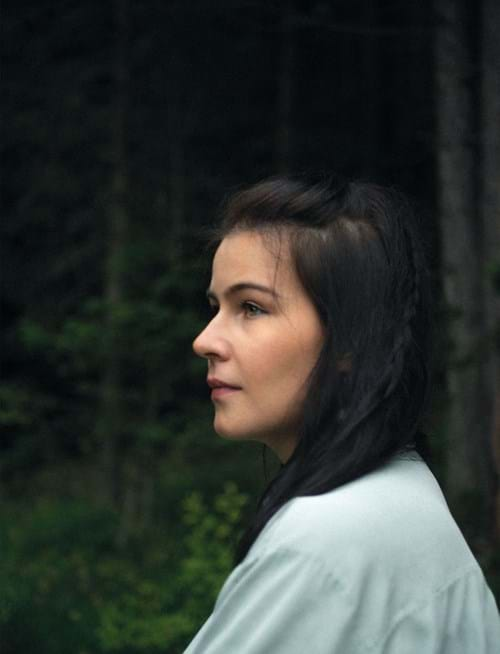Nancy Camaldo is passionate about studying the inner lives of her characters. In order to tell better stories, the director advocates for more inclusion in the film industry.
Lara and Ida’s relationship isn’t an easy one, but the dust finally seems to be settling. That is, until the story of the two sisters takes a surprising turn – and director Nancy Camaldo leaves audiences with an open ending in Windstill (2021), her graduation film from the University of Television and Film in Munich. “The film is a snapshot and can be interpreted as you wish,” says the Bolzano native. Its themes include lifelong dreams, the compulsion for self-actualization and the abundance of possibilities that ultimately paralyzes the main characters. These are “typical problems of an affluent society,” narrated cinematically by Camaldo with profound sensitivity and details that are meticulously developed.
Windstill is a lavish production for a graduation film. But Camaldo’s previous film Haut had done so well that the director and her producers at Munich-based Elfenholz Film decided to go bold: they made a feature-length film with support from IDM, the German Federal Film Board and the BR. The film premiered at the Max Ophüls Festival. “I want to chronicle interpersonal dramas and conflicts,” Camaldo says, “They’re everywhere: in private life and Mars landings, in sci-fi and historical films.” She’s a big fan of genre: it’s quite possible that her official debut film will be a thriller.
The 29-year-old has always wanted to work in a creative field. “At first, I had doubts, because directing has been very male-dominated up until now. And I had no experience,” she recalls. But she followed her gut instinct, applied to the HFF and was successful. “You’ll always run into people who discourage you. But criticism is something you can take and turn into progress,” she says firmly.

Camaldo speaks in a calm and gentle manner, while at the same time being fully aware of her leadership role. “I do like to keep control of the deliverables, but don’t impose my methods on set. There are enough talented people there. My job is to encourage and involve them in order for my film to benefit,” she says. “Directing is communication.”
And directing is a male domain no more. A new generation of women directors is at work, with a lot of potential to break down outdated structures. How, exactly? “By producing more female-driven scripts, having more diverse main characters. Why are female actors over 40 seen only in cliché roles? As if they shouldn’t age? Yet good stories could be told from their perspective,” says Camaldo. She also calls for more diversity in every department: “That’s the only way to create beautiful films that speak authentically to the whole of society!”